Review: Even if decades have passed since Rushmore first hit movie theaters, Wes Anderson’s sophomore film still has characters and tonal inflections that he hasn’t quite matched since. Jason Schwartzman proves he’s a perfect match for Wes’ desired movie-making style.
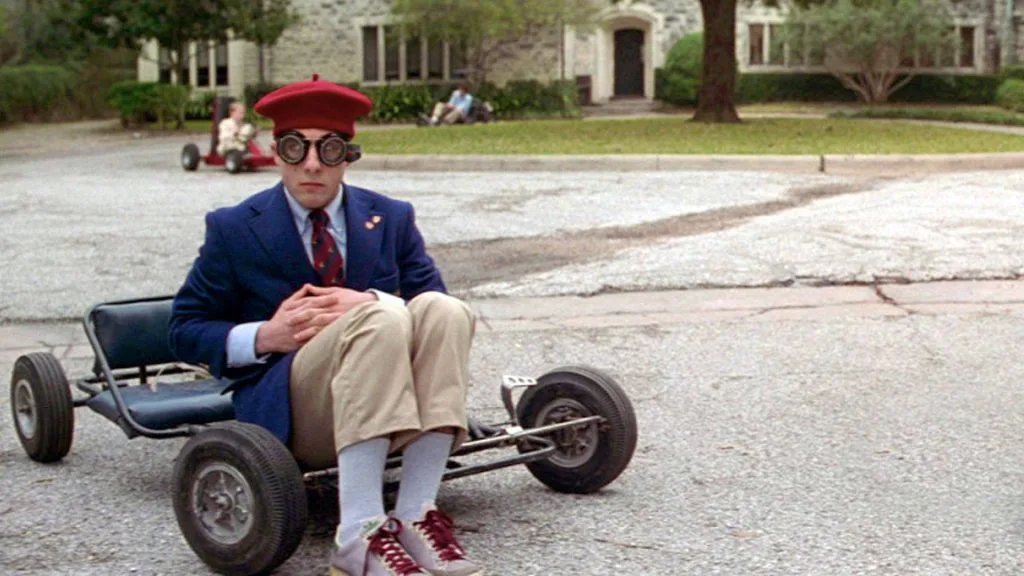
Although Wes Anderson’s career starts with Bottle Rocket and the short film that inspired that movie, I don’t think it really takes off (no pun intended) into another stratosphere until Rushmore – a breakout hit worth every bit of praise that it gets. It may live a bit in the shadows of a few movies that come after it, but it’s undeniable that the motifs and thematic impulses Wes Anderson begins to lay out here are monumental in the works that would follow.
Rushmore is also Wes Anderson at his most acidic, as if he’d enlisted the help of Noah Baumbach to write this campus angst drama (that wouldn’t be the case until The Life Aquatic, but the similarities and inspirations are still palpable). Max Fischer, a true sociopath played by Jason Schwartzman, is Wes’ most fraught and broken character he’s ever worked with, and there’s not really much competition. It’s shocking watching these movies in succession that Wes Anderson’s next few movies would have even an ounce of warmth, or that he would be given a bigger stage to work with given how intentionally unlikeable he turns some of these scenes into.
The movie follows Max Fischer, an ambitious teenage student at Rushmore prep school, and his chase to win the affection of newly hired first-grade teacher Miss Cross (Olivia Williams). Max falls in love with Miss Cross quite quickly and calls for the help of the wealthy father of two of his classmates, Herman Blume (Bill Murray), to help him win her over. Things get complicated when Herman also falls in love with Miss Cross, and a budding war boils over as the two fight for her attention.
The standout performance of the movie is Jason Schwartzman, as he not only announces himself as an actor to watch for in the future, but he secures his spot in nearly every Wes Anderson picture that follows. His work in here is equally infuriating and saddening as he displays an inability to understand human emotion and the nurturing that goes into building real relationships with one another.
Max is always looking to find an edge; a way to gain another fifteen seconds of fame in order to impress his classmates and teachers. The opening sequence lays this out in detail as he daydreams of the opportunity to solve an impossible geometry question that would get his classmates out of the subject indefinitely. He approaches each student interaction and extracurricular activity in this same manner, as if he always has to work to impress those around him.
But then the movie peels back the layers to Max’s backstory – his mother passing away and their family being middle-class, in contrast with his wealthier classmates. He figures the only way to stand out is to make a name for himself, and that’s by being brash and tenacious (a quality that wears on his peers quickly).
Rushmore serves as an entrée into the thematic ideas and visual styles that Wes Anderson would continue to work through with every feature after. His dollhouse framing is on display here, but as is the case with these early Wes Anderson flicks, it’s done in a more humane and French New Wave-adjacent aesthetic. The worlds aren’t built to reflect his framing, his framing must work to live inside of these worlds.
Reviews for Wes Anderson Movies like Rushmore (1998)
Montage also plays a heavy hand in some of the worldbuilding going on inside of Rushmore. One of my favorite moments of any Wes Anderson movie happens towards the beginning of this movie as it quickly runs through the after school activities Max either takes part in or founded. Each shot only lasts for a few seconds, but each one is bursting with comedy and life. He packs so many different props into each frame that it’s impossible to pick up on every little bit of it.
The sound is more elegant and unobtrusive than some of his more stylized efforts, but there are still pristine needle drops by John Lennon, The Kinks, and others. It doesn’t have quite the stacked set of tracks like The Royal Tenenbaums, but it’s in the same ballpark.
Years later, it feels like the impact of Rushmore still hasn’t been fully realized. It may feel at times as if Wes Anderson is still working through developing the visual style he’s well known for now, but I prefer to see some rougher takes on the look that occasionally feels stiff now. Again, I like the naturalistic world he’s working in here more than the fully designed, handcrafted sets he is using more recently.
But even with some of these changes, Rushmore stands as an inflection point in Wes Anderson’s career. He’s never been as mean and aggressive as he is here, as well as unrelenting. The movie largely works or doesn’t work based on your feelings on Max Fischer as a character. Some will certainly be turned off by his antics, but his characterization works for me and keeps this 90 minute movie fresh, exciting, and feeling wholly singular – as all of Wes Anderson’s best movies are.
Where to watch Rushmore: VOD
Rushmore Movie Cast and Credits
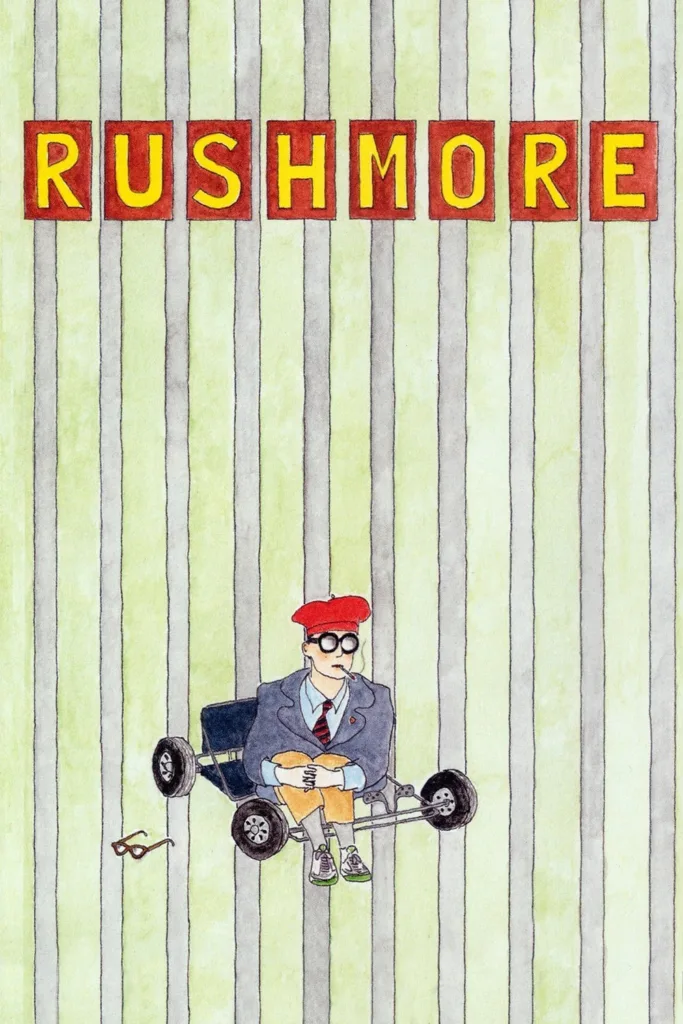
Cast:
Jason Schwartzman as Max Fischer
Bill Murray as Herman Blume
Olivia Williams as Rosemary Cross
Seymour Cassel as Bert Fischer
Brian Cox as Dr. Nelson Guggenheim
Luke Wilson as Peter Flynn
Crew:
Director: Wes Anderson
Writers: Wes Anderson, Owen Wilson
Cinematography: Robert D. Yeoman
Editor: David Moritz
Composer: Mark Mothersbaugh
Rushmore movie on Letterboxd
Rushmore movie on IMDb
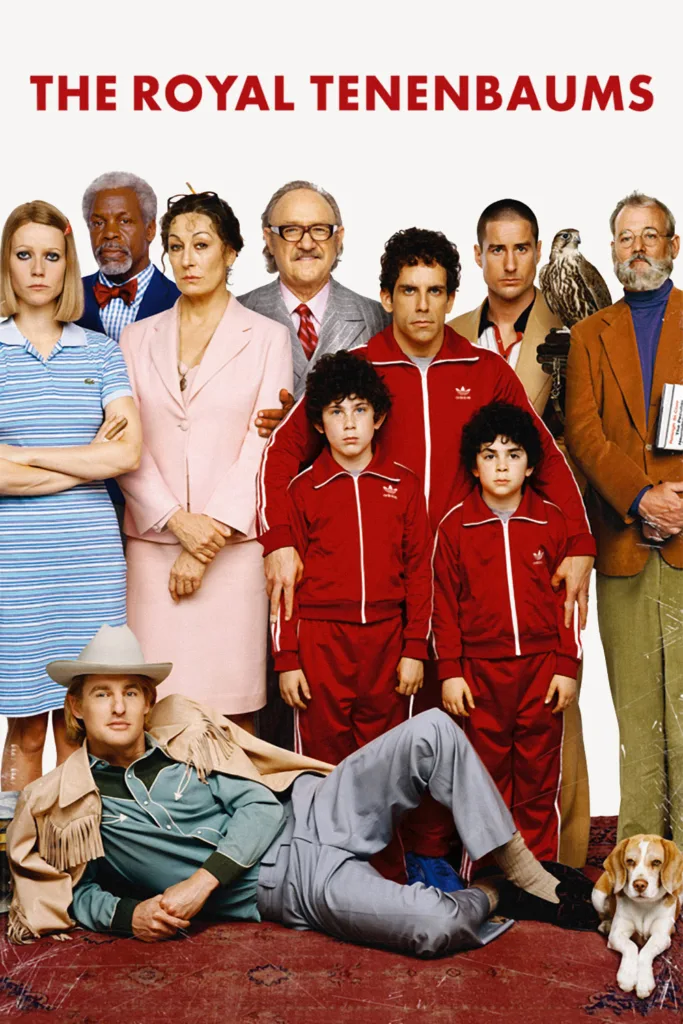
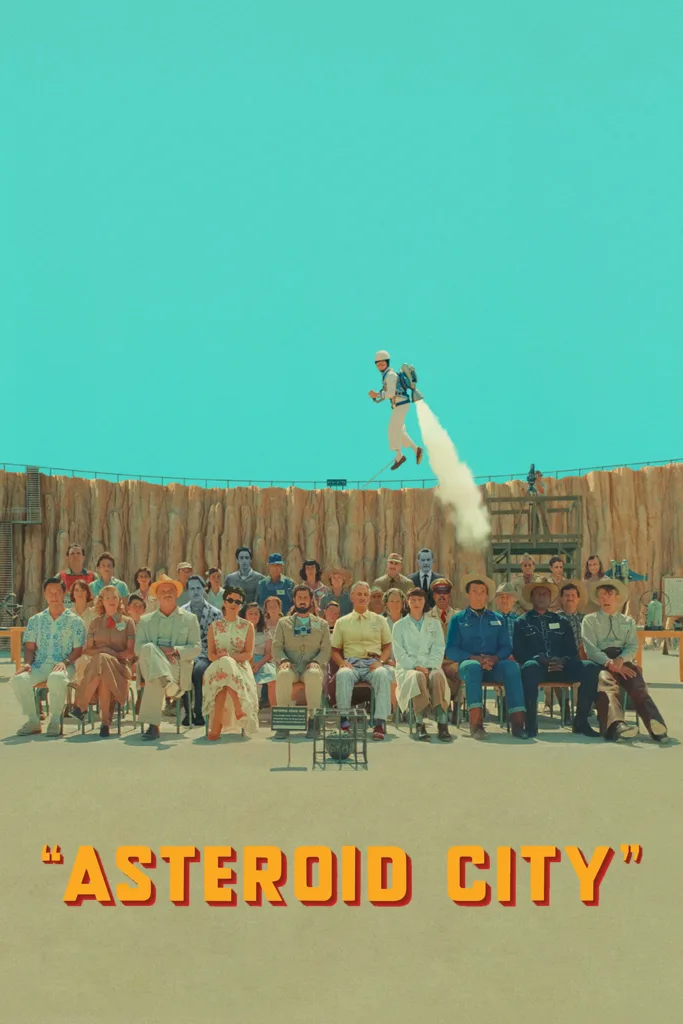
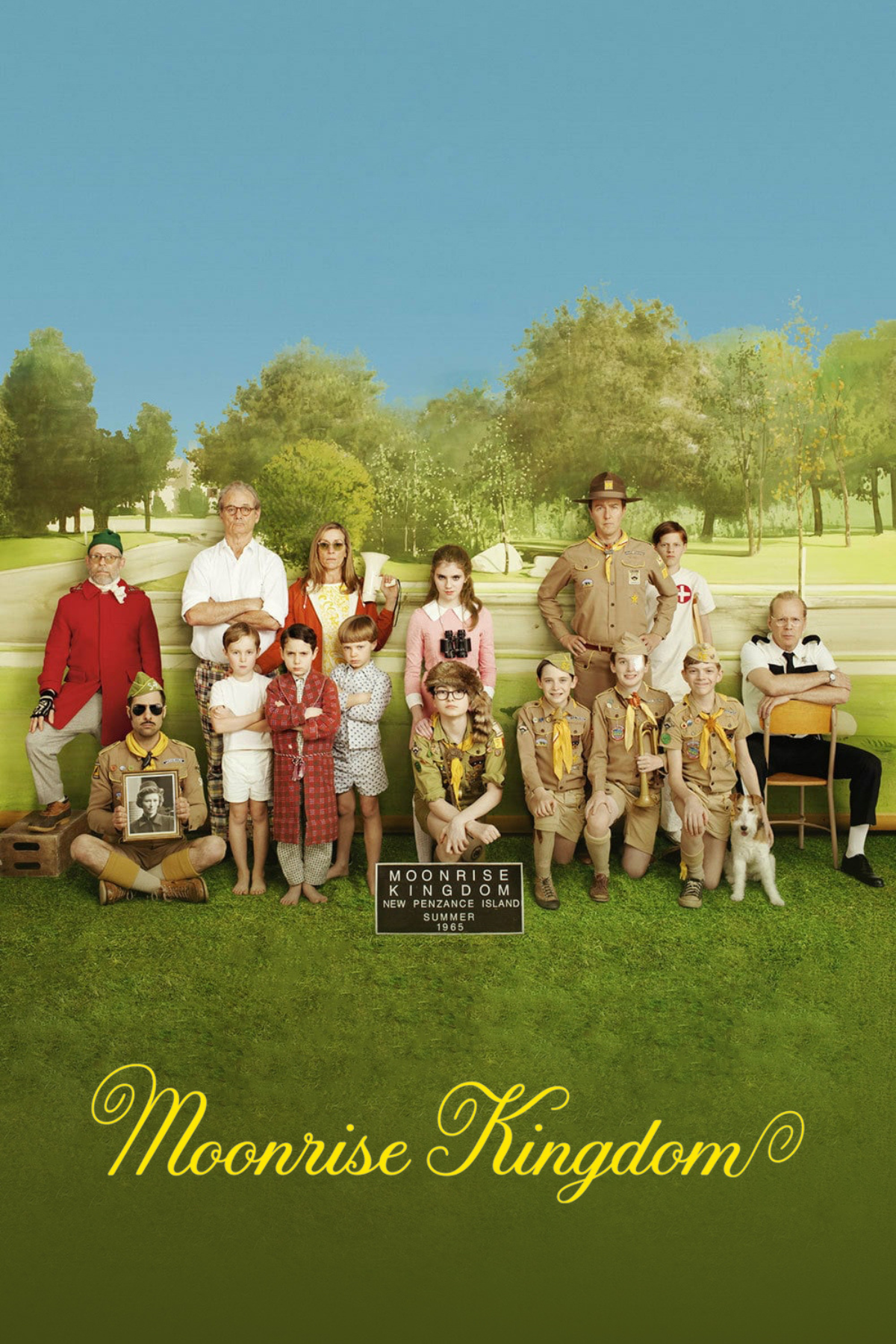
1 thought on “Rushmore Movie Review: Wes Anderson’s Acidic Breakthrough Still Feels New 25 Years Later”
Comments are closed.